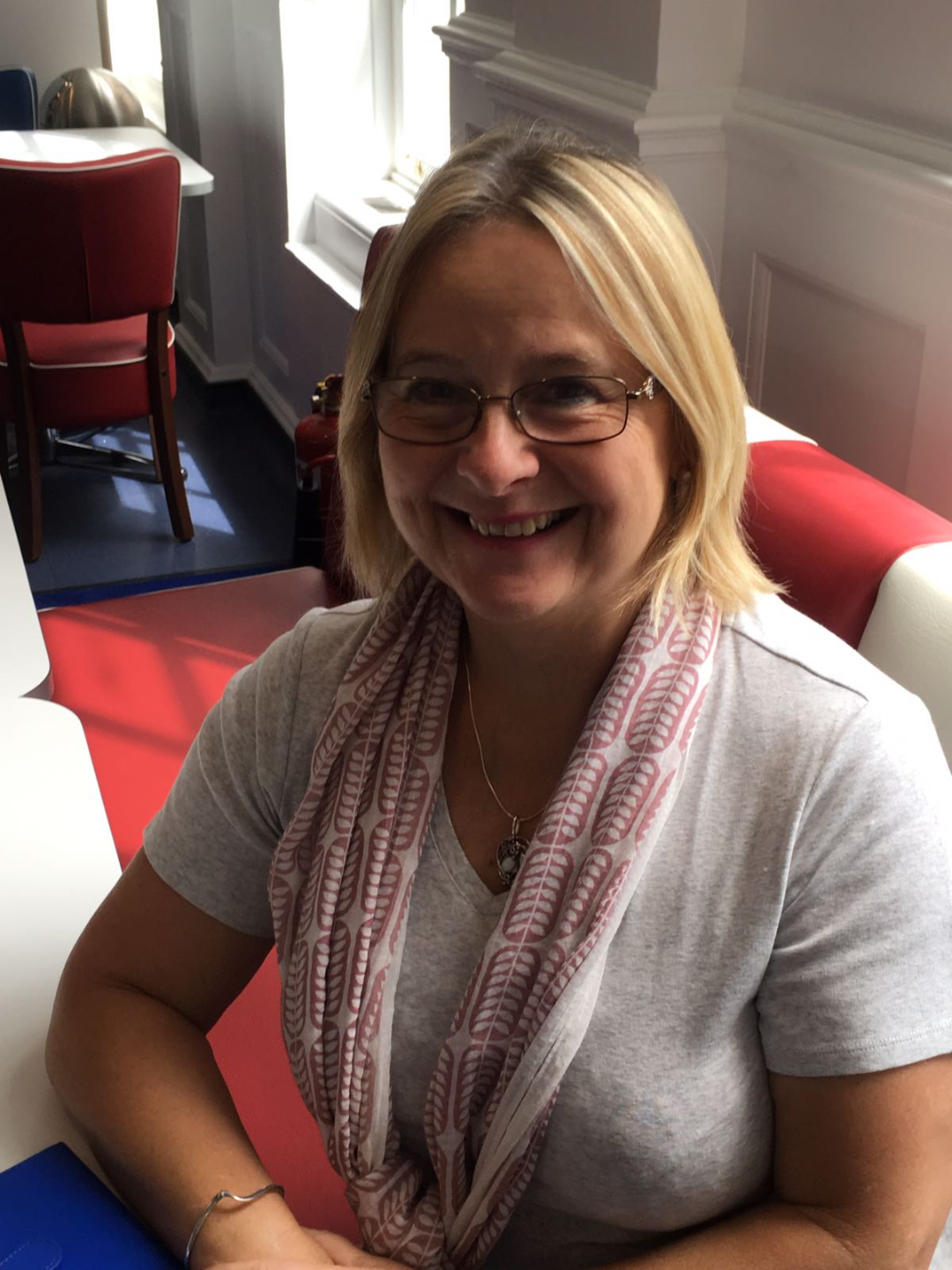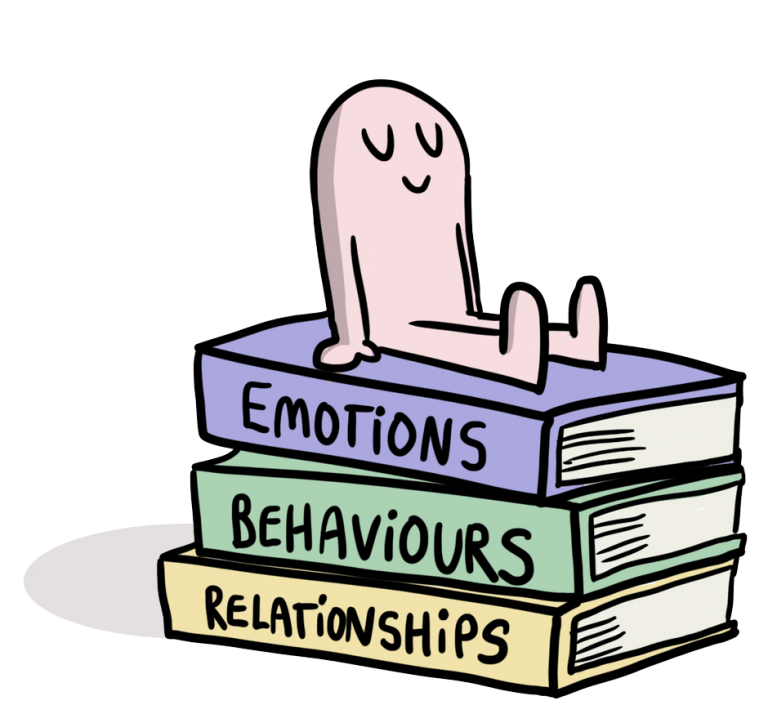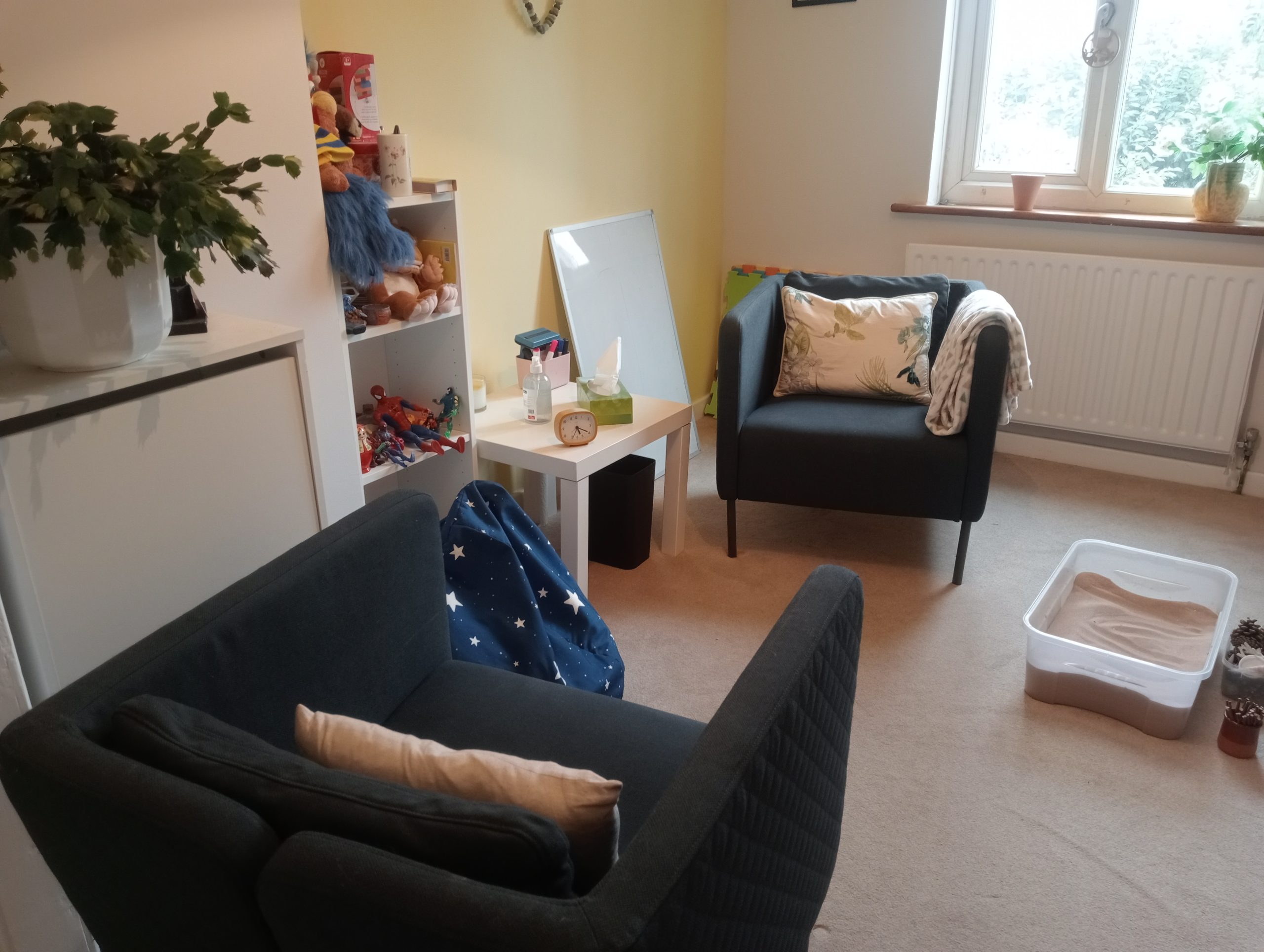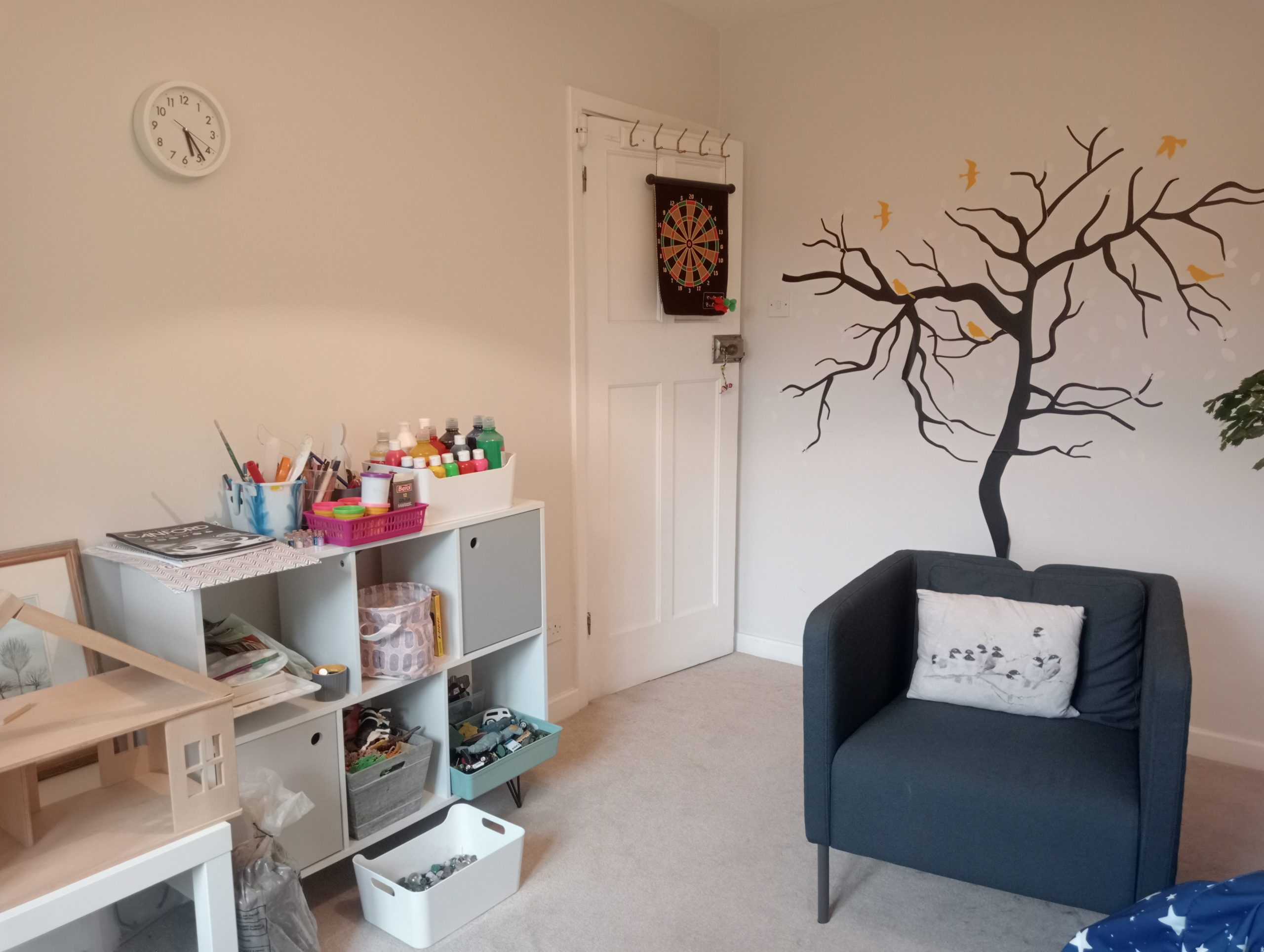COUNSELLING FOR Children & Young People
"Feelings come and go like clouds in a windy sky"
Thich Nhat Hanh
Welcome, and thank you for visiting my website.
A little about me. I have worked with children and young people throughout my professional life in a variety of ways and settings.
Firstly as a careers advisor helping teenagers with their choices of post 16 education and training. I spent 20 years as a primary school teacher in a multi cultural school in a diverse area.
I have always been interested in how experiences and life circumstances can impact children's and adolescent's abilities to learn and how these can affect their relationships and emotions. On the strength of this I decided to retrain as a Counsellor and Psychotherapist for children and Young People at the Institute for the Arts and Therapy in London. (IATE).

In my spare time I have worked as a volunteer with a Women's Refuge, supporting children with play and with the NSPCC as an educator on recognising and reporting abuse, leading presentations on this in primary schools. I am currently working with the charity Barnado's, helping to support parents and their children.
MY APPROACH
As a Counsellor and Psychotherapist working with children, teens and young people, my aim is to build an empathic therapeutic relationship with my clients, so that they feel safe enough to tell me their story, from their perspective. It is in this exploration of their story, of the difficulties and issues they are experiencing that can begin to be looked at and reflected on. This is where the processing of painful feelings and memories can be worked through and an understanding gained about their inner life and how their thoughts and behaviours can be impacted by these. Feelings of anxiety, depression, sadness and anger can be acknowledged and understood in the context of their life and strategies co-created to help them. Children and young people will often protect their parents/carers from their own difficult feelings in an attempt not to worry them.
" We are all personalities that grow and develop as a result of our experiences, relationships, thoughts and emotions"
V. M. Axline

Support and Strength-Building
As an advocate for the child / adolescent I can be a bridge, helping to facilitate a deeper understanding of what could be helpful for the client in their current situation and how to move forward. A Swedish proverb states "Worry gives a small thing a big shadow". Together we can address any thoughts and beliefs that may be unhelpful to their sense of self worth as well as recognising the strengths that they have.
The healthy, uninterrupted development of a child's senses, body, feelings and intellect is the underlying base of the child's sense of self. A good sense of self makes for good contact with one's environment and people in the environment.
Creative, Integrated Practice
I use an integrated approach in my work which means I use talking therapy as well as a range of media e.g. painting, drawing, clay work and sand tray. My role is to act as a facilitator, to listen without judgement and to reflect on what might emerge in the session, all within the framework of a positive, non-intrusive and confidential setting. To be playful and empathic in the broadest sense of the word, in order to encourage hope in what can appear to the child/young person as a permanent, negative situation. Staying with them emotionally and being curious.
REVIEWS
"Thank you very, very much for helping me with my anger issues"
Client aged 9
"I wanted to thank you for helping me so much. I couldn't have done it without you and I feel so much stronger and in control of my anxiety gremlin!"
Client aged 16
"Thank you for always being there and teaching me things I never knew about myself"
Client aged 17
"You have taught me that I am much stronger than I think I am"
Client aged 15
CONTACT ME
Feel free to contact me if you have any questions about how counselling and psychotherapy works, or to arrange an initial assessment appointment. This enables us to discuss the reasons you are thinking of coming to therapy, whether it could be helpful for you and whether I am the right therapist to help.
You can also call me on +44 07530580245 if you would prefer to leave a message or speak to me first. I am happy to discuss any queries or questions you may have prior to arranging an initial appointment.
All enquires are usually answered within 24 hours, and all contact is strictly confidential and uses secure phone and email services.
MY LOCATION
I work from a private room located in Teddington, in Richmond, Middlesex, TW11 8UJ. My practice is easily accessible to clients from Teddington and the surrounding areas, including Richmond, Twickenham, Hampton, Strawberry Hill, Kingston upon Thames and beyond.
My room is a 10 minute walk from Fulwell railway station.
Sessions
Sessions last for 50 minutes and clients should arrive 5 minutes before the start of the session. An initial series of 4 sessions are booked in order to see if the client feels comfortable with me and is able to begin to trust me. This also enable me to assess whether I am a "good fit" with the client.
Before sessions begin, I will take a full medical and social history from the client's parent or carer. This can be done by telephone and there is no charge for this.
Parents are not invited into sessions unless at the request of their child. Sessions are confidential and no information will be shared unless the child wishes or if there is a danger of harm to either the child or to someone else.
Fees
Once sessions are agreed, I will forward my terms and conditions with details of payment via email. Cancelled sessions will incur a full charge unless 48 hours notice is given.
Charges are £60 per session with a concessionary rate for individual cases agreed on discussion of personal circumstances.


FREQUENTLY ASKED QUESTIONS
Counselling is usually a good way to help with a current problem; something that can be discussed and - hopefully - resolved within a limited number of sessions. Over a certain number of weeks the understanding of the problem improves and away forward becomes clear. Therapy often describes work that goes a bit deeper, towards more substantial life issues and problems having a deeper effect on the client’s life. Therapy often requires a long-term approach, so the number of sessions can be open-ended.
Which option is most suitable depends on the client and the difficulties they are facing. In some cases counselling works well as an ongoing, longer-term option - or therapy can manage to resolve an issue in just a few sessions.
How long a period of counselling lasts will vary from person to person and depend on the depth of the issues they are facing.
Before we begin any work we will agree on the number of sessions we’ll undertake, and at the end of that number review our progress. As long as we both agree further therapy will be of benefit to you, sessions can continue.
My aim is to offer a first appointment - known as an initial assessment - within 1-2 weeks. Then we would arrange a set number of counselling sessions to take place at the same time every week, that is convenient for you and where I have availabity. How quickly these sessions can begin will depend on the availabity of that free ‘slot’.
Everything that is said within the counselling room is private - this is one of the main ways counselling and therapy differ from talking to a friend or relative. Once you are comfortable with the format of weekly sessions and the safe space they provide, you will find the freedom to speak in confidence is of great value.
Note that there are some situations where you may be a risk to yourself or others, and there the law requires that I notify an authority; in these cases I may not be able to keep total confidentiality. Breaking confidentiality is very rare though, and only happens after the person concerned has been informed.
Usually I am asked this question by people who are nervous about entering into counselling, or when they are looking for support in coming to see a therapist. This anxiety is understandable, but a key aspect of therapy is that you should feel free to talk about any issues you feel are important to you. Having someone else with you who can be connected those issues makes this opening-up more difficult.
©Counselling for Children, Adolescents and Young People in Teddington, Richmond
Powered by WebHealer
